
"Our vision is to transform CYTA into the most competitive enterprise in Cyprus …We hope that the State will provide us with the necessary autonomy and flexibility to materialise our vision: the transformation of CYTA into a public limited company and the limitation of the relationship between the major-owner, the state, and CYTA Ltd. into a strictly financial one".
The above were underlined amongst others in the speech of CYTA’s Chairman, Mr. Stathis Papadakis at the event for the presentation of the Organisation’s Annual Report for 2000 that took place on the 19 July 2001, at Forum Intercontinental Hotel in Nicosia. Mr. Papadakis had also a few surprises and announcements for all those present, that concerned a series of reductions to the CYTAGSM postpaid mobile telephony service and the introduction of two new charge packages for this service, as well as further reductions to the international call rates, some of which amount up to 55%.
Party leaders and representatives of parties, the Minister of Communications and Works, Mr. Averof Neofytou, Members of the Parliament, senior officers from the public and private sectors as well as other personalities and representatives of the media were present at the event
In his presentation of the work that was achieved during 2000, the CYTA Chairman referred to the challenges of the new era, pointing out that in the new environment that is being formed, the inflexible and slow-moving state or private enterprises and organisations do not have any possibilities of survival. "As an Organisation, we have seen the signs of the times and in recent years we have begun the process of adapting to the new developments …" said Mr. Papadakis, who supported this statement by arguing that the achievements of 2000 are summaries in the Organisation’s increase of productivity, the offer of new services and products, the implementation of a modern pricing policy, the further modernisation of the network, the introduction of modern methodologies of management and administration, the qualitative upgrading of customer service and the total quality management. When referring to the financial results of 2000, which he characterised as highly satisfactory, the CYTA Chairman stated that "CYTA, by increasing the productivity of both its human and non-human resources and by expanding the services it provides, has succeeded in making drastic cuts to its international telephone rates while presenting financial results that are much better than those of 1999", clarifying that "the turnover has increased by 16 million pounds or 9.8% while the total of expenses came up to 118 million pounds, thus presenting an increase of 2 million or just 1,7%."
Adding that "The 2000 surplus came up to 91 million before tax and 64 million after tax, against 62 million and 46 million respectively in 1999", Mr. Papadakis did not omit to remind that despite the fact that the Organisation is from time to time criticised for its financial robustness, and specifically for the size of its reserves, it is exactly these reserves that constitute accumulated public wealth that was created during the 40 years of the Organisation’s course. It also added: that the financial robustness of CYTA is based on "the increased productivity due to the technological upgrading of its infrastructure, the reengineering of its activities, and the hard work of the personnel, that in many occasions rocketed its productivity with its voluntary and selfless overtime work." He expressed the view that "CYTA’s success can within the known frameworks, be taken as a revocation of the negative image that the wider public sector has" and concluded: "CYTA, that today offers to the Cypriot consumer the basket with the lowest rates of telecommunication services in the European Union, is in a position, thanks to its profitability and increased reserves, to proceed to the materialisation of its ambitious development program. Thus, it shall maintain Cyprus amongst the most advanced countries in the sector of telecommunications with all the attached positive impacts on the country’s economy. And this will be realised without resorting to the state funds and therefore without violating the Acquis Communautaire".
He then went on to refer to reports relevant to the Organisation’s future plans, stating that the basic pillar of its development is its activation in value-added services and its expansion in new markets. "Our objective is to be omnipresent, catering for and satisfying all our customers’ needs in electronic communication", stated Mr. Papadakis, pointing out at this point that even though CYTA is a highly demanded partner by many national and international companies for participation and collaboration in big telecommunication works, the problems that arise due to the current legal and regulatory framework are a suspending factor to the success of such collaborations.
When thanking all those who have contributed to the success of CYTA, the Chairman expressed honestly and unambiguously the conviction that "there is only one way for CYTA to be able to compete with private enterprises that have great experience in the free market, and to be able to survive and why not, continue to grow: The State to provide CYTA with the possibility to operate on equal terms with its competitors. To be transformed into a public limited company. We hope that before the end of 2001 the legislation will have been enacted and that the materialisation of the transition will begin".
The above were underlined amongst others in the speech of CYTA’s Chairman, Mr. Stathis Papadakis at the event for the presentation of the Organisation’s Annual Report for 2000 that took place on the 19 July 2001, at Forum Intercontinental Hotel in Nicosia. Mr. Papadakis had also a few surprises and announcements for all those present, that concerned a series of reductions to the CYTAGSM postpaid mobile telephony service and the introduction of two new charge packages for this service, as well as further reductions to the international call rates, some of which amount up to 55%.
Party leaders and representatives of parties, the Minister of Communications and Works, Mr. Averof Neofytou, Members of the Parliament, senior officers from the public and private sectors as well as other personalities and representatives of the media were present at the event
In his presentation of the work that was achieved during 2000, the CYTA Chairman referred to the challenges of the new era, pointing out that in the new environment that is being formed, the inflexible and slow-moving state or private enterprises and organisations do not have any possibilities of survival. "As an Organisation, we have seen the signs of the times and in recent years we have begun the process of adapting to the new developments …" said Mr. Papadakis, who supported this statement by arguing that the achievements of 2000 are summaries in the Organisation’s increase of productivity, the offer of new services and products, the implementation of a modern pricing policy, the further modernisation of the network, the introduction of modern methodologies of management and administration, the qualitative upgrading of customer service and the total quality management. When referring to the financial results of 2000, which he characterised as highly satisfactory, the CYTA Chairman stated that "CYTA, by increasing the productivity of both its human and non-human resources and by expanding the services it provides, has succeeded in making drastic cuts to its international telephone rates while presenting financial results that are much better than those of 1999", clarifying that "the turnover has increased by 16 million pounds or 9.8% while the total of expenses came up to 118 million pounds, thus presenting an increase of 2 million or just 1,7%."
Adding that "The 2000 surplus came up to 91 million before tax and 64 million after tax, against 62 million and 46 million respectively in 1999", Mr. Papadakis did not omit to remind that despite the fact that the Organisation is from time to time criticised for its financial robustness, and specifically for the size of its reserves, it is exactly these reserves that constitute accumulated public wealth that was created during the 40 years of the Organisation’s course. It also added: that the financial robustness of CYTA is based on "the increased productivity due to the technological upgrading of its infrastructure, the reengineering of its activities, and the hard work of the personnel, that in many occasions rocketed its productivity with its voluntary and selfless overtime work." He expressed the view that "CYTA’s success can within the known frameworks, be taken as a revocation of the negative image that the wider public sector has" and concluded: "CYTA, that today offers to the Cypriot consumer the basket with the lowest rates of telecommunication services in the European Union, is in a position, thanks to its profitability and increased reserves, to proceed to the materialisation of its ambitious development program. Thus, it shall maintain Cyprus amongst the most advanced countries in the sector of telecommunications with all the attached positive impacts on the country’s economy. And this will be realised without resorting to the state funds and therefore without violating the Acquis Communautaire".
He then went on to refer to reports relevant to the Organisation’s future plans, stating that the basic pillar of its development is its activation in value-added services and its expansion in new markets. "Our objective is to be omnipresent, catering for and satisfying all our customers’ needs in electronic communication", stated Mr. Papadakis, pointing out at this point that even though CYTA is a highly demanded partner by many national and international companies for participation and collaboration in big telecommunication works, the problems that arise due to the current legal and regulatory framework are a suspending factor to the success of such collaborations.
When thanking all those who have contributed to the success of CYTA, the Chairman expressed honestly and unambiguously the conviction that "there is only one way for CYTA to be able to compete with private enterprises that have great experience in the free market, and to be able to survive and why not, continue to grow: The State to provide CYTA with the possibility to operate on equal terms with its competitors. To be transformed into a public limited company. We hope that before the end of 2001 the legislation will have been enacted and that the materialisation of the transition will begin".

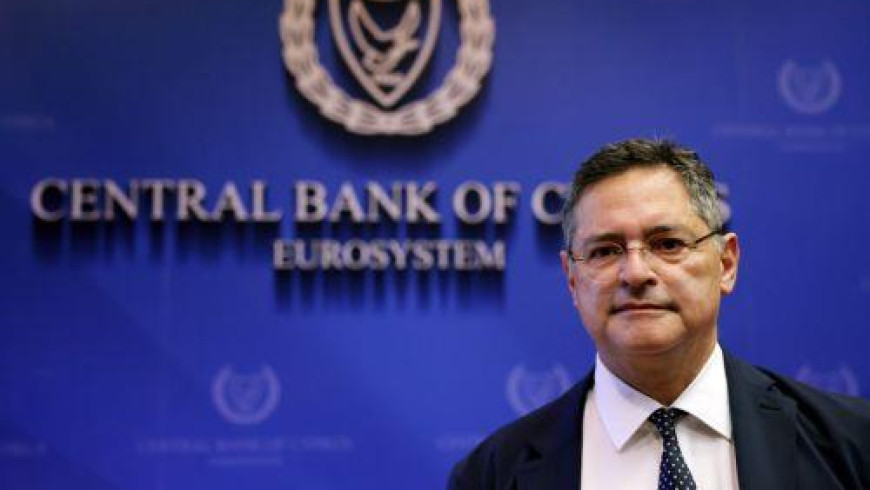

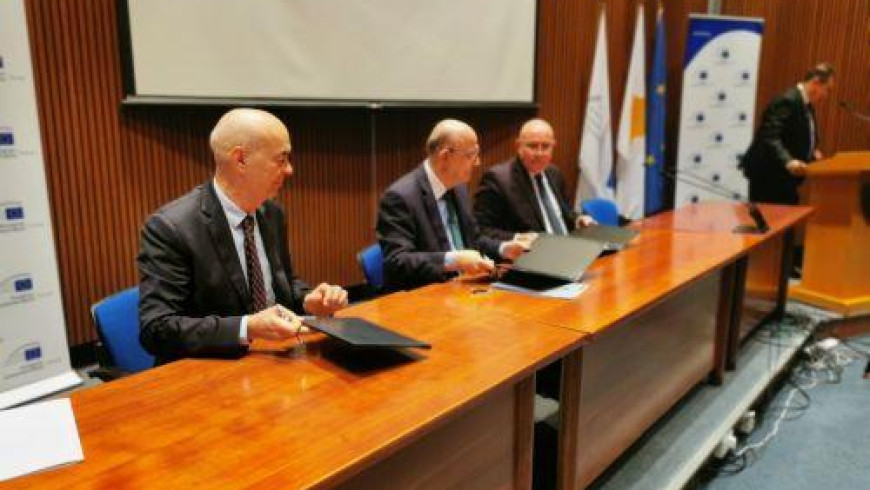
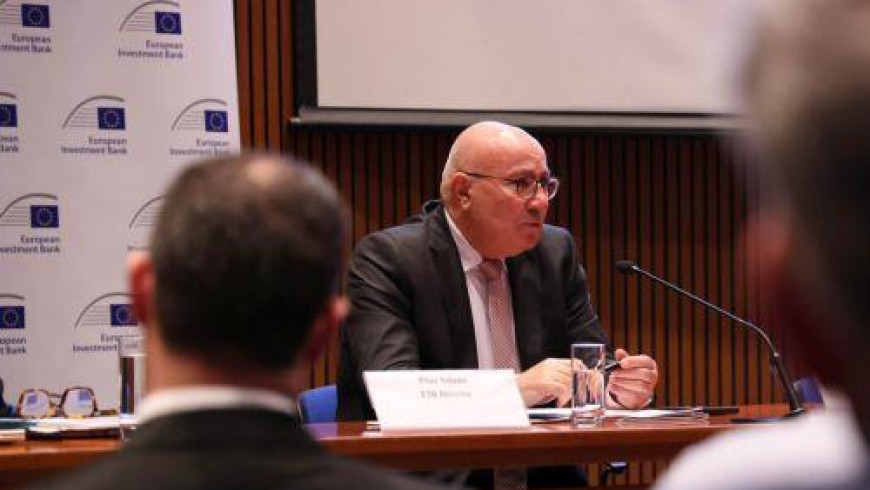

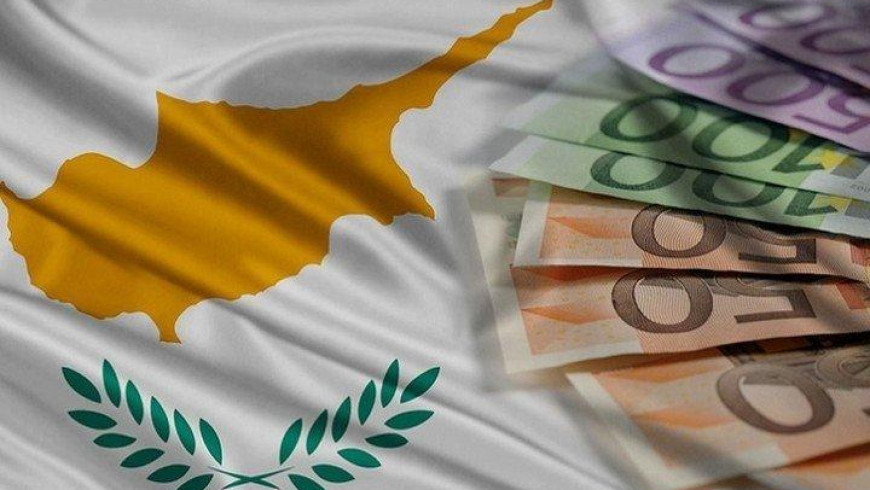

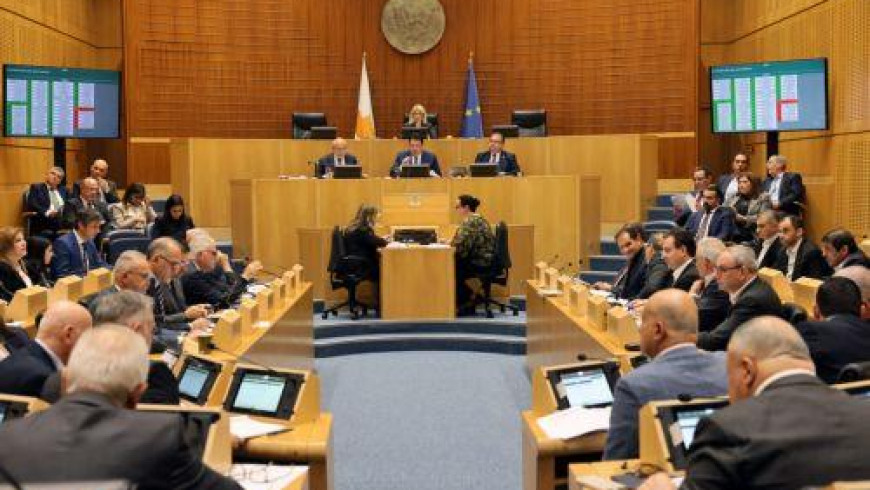





 3287.99
3287.99 1275.09
1275.09
